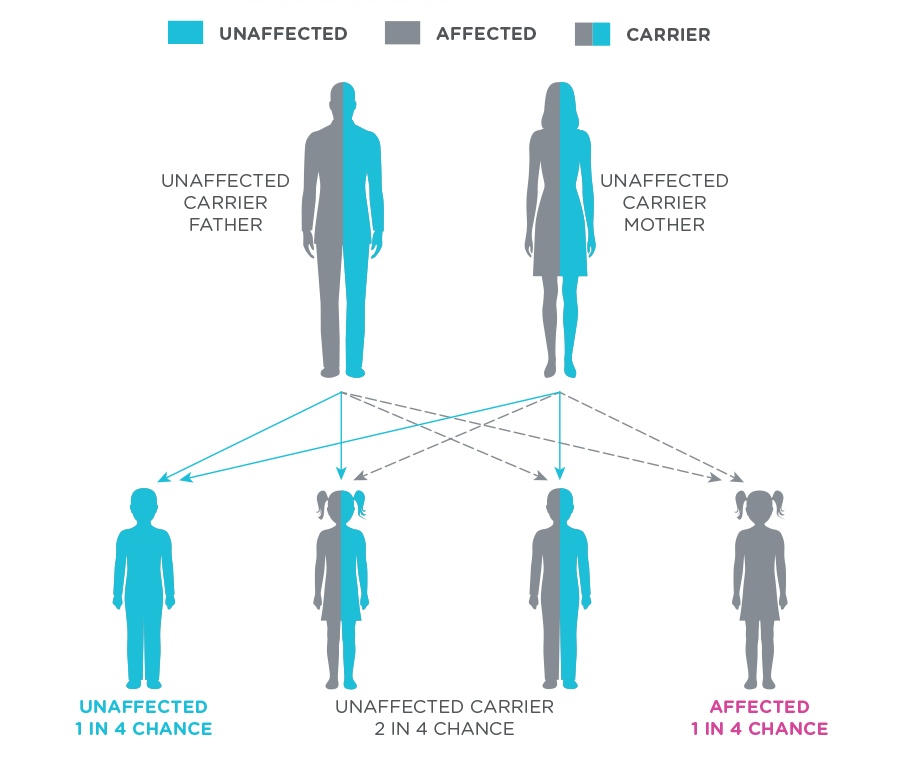
If parents are consanguineous, they are both more likely to carry the same abnormal gene, which increases the risk of consanguineous parents having a child with a hereditary disorder.

If parents are consanguineous, they are both more likely to carry the same abnormal gene, which increases the risk of consanguineous parents having a child with a hereditary disorder.